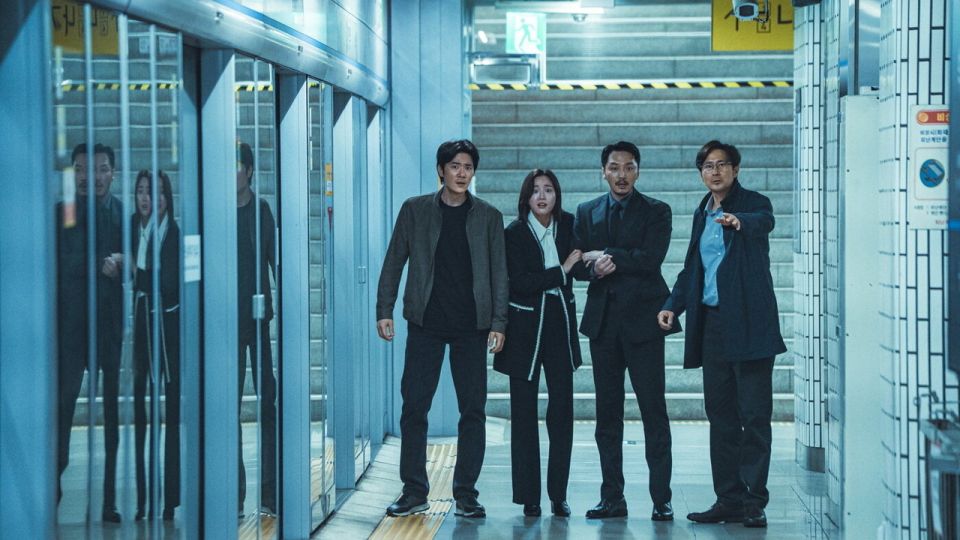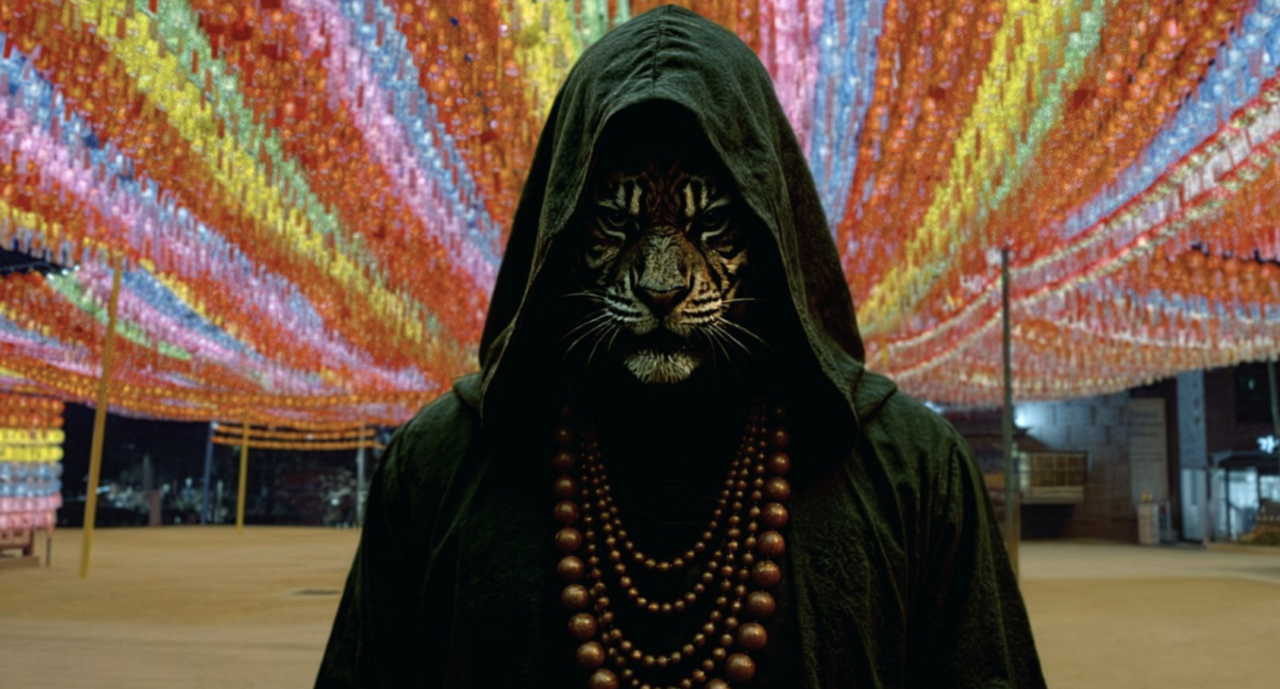Blending human imagination with algorithmic spectacle, film marks pioneering step in Korean cinema.

SEOUL – Artificial intelligence is worming its way into nearly every corner of pop culture — and now it has reached the big screen.
Opening in theaters on Wednesday is Korea’s first AI-incorporated feature film, Run to the West, directed by Kang Yun-sung, the acclaimed filmmaker behind Disney+’s Big Bet and Low Life.
The 60-minute fantasy project isn’t shy about what it is: Run to the West is a chaotic rollercoaster powered by the aggressive use of AI rendering. The story itself is rooted in high-concept mysticism: A group of people are stuck in limbo after near-death experiences and are hounded by unearthly figures who decide whether they belong in the afterlife or the land of the living.
ALSO READ: Hollywood, Bollywood groups lobby Indian panel to protect content from AI models
Headlining the film are marquee names Byun Yo-han (Mr. Sunshine, Uncle Samsik), Bang Hyo-rin (Aema) and Yang Se-jong (Low Life, Doona). The trio spends much of the running time sprinting through central Seoul (mostly Anguk and Gwanghwamun areas) while being pursued by AI-generated grim reapers fashioned as animals and the Four Heavenly Kings of Buddhism.
The creatures veer from uncanny realism to awkwardly cartoonish, sometimes laughably fake, but the movie barrels forward with enough explosions, chases and fireballs to hold attention.
Monday’s press conference for the film had a different tenor than the usual banter-filled rollouts, aware that Run to the West is taking a pioneering step in the Korean cinematic landscape.
According to Kang, the project began on a much smaller scale.

“While I was filming Low Life last year, KT proposed making a short AI film of about 5–10 minutes. At the time, I had a script called Mobius that I had written around 25 years ago when I was preparing to debut, and I thought it would be great to turn that into a film. So I revised the entire script into a feature-length project, and the planning process began in collaboration with KT,” he said.
As AI continued to evolve at breakneck speed even as production was underway, Kang found himself less skeptical about the long-term role of AI in cinema.
“In the early preproduction stage, when we used AI for previsualization, the quality still felt lacking for a commercial film. But as we continued filming and editing, the technology kept improving,” he said.
READ MORE: Application of AI bolsters culture and museum sectors
“New techniques were emerging every single day, at a pace we could hardly keep up with, so I believe it won’t be long before AI can be actively used in the film industry. AI is a good tool and plays a supportive role for creators. Everything naturally moves toward greater efficiency. I hope AI can serve as good inspiration and bring new energy to the film and drama industry,” he added.
But it wasn’t just the monsters and explosions being handled by code. Run to the West features a human character rendered through AI — a move that sparked questions about whether actors could be fully replaced.
Byun, however, dismissed the idea. “While filming, I kept thinking about how AI could be used in the film industry, how far it might cross over, and what limits it could reach. In the end, I realized that without the imagination of directors, actors and staff, AI cannot exist,” he said.
He added, “In fact, I believe the film industry now has come down to a battle of time and capital, and this project really made me feel that firsthand.”


